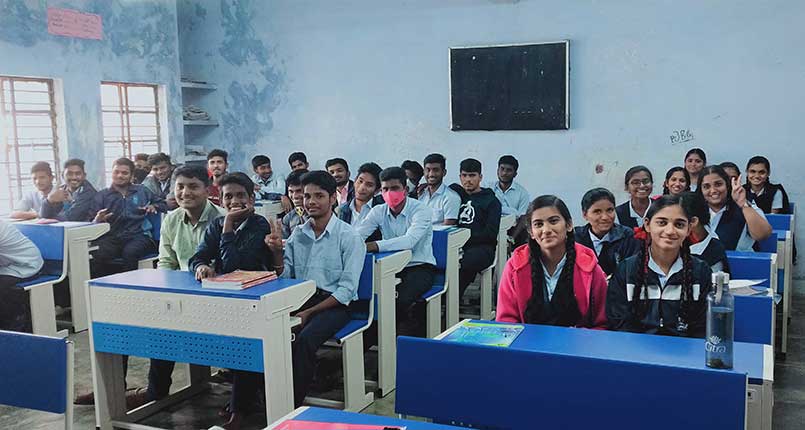Tata Motors Limited is a leading global automobile manufacturer of cars, utility vehicles, pick-ups, trucks and buses. Tata Motors’ focus on engineering and tech-enabled automotive solutions, catering to the future of mobility, has made it India’s market leader in commercial vehicles and one of the top four in the passenger vehicles market. From its brand promise of ‘Connecting Aspirations’ arises the Company’s innovation efforts that aim at developing pioneering technologies that are both sustainable as well suited to the evolving aspirations of markets and customers.
Tata Motors has released its 8th Annual Corporate Social Responsibility (CSR) Report highlighting its comprehensive efforts to address societal and environmental challenges in FY22 while fostering inclusive growth to drive impact and promote sustainable development and nation-building.
1. Healthcare Initiatives
Tata Motors aims to build a stronger and healthier today and tomorrow for India’s children to address malnutrition among children between birth and the age of six. In addition to augmenting diets and providing nutritional supplements to malnourished children, Tata Motors also focuses on behavioural change and awareness building in the community to accomplish sustained health. Tata Motors also extends preventive and curative health care services to both infants and their mothers.
1.1 Fortifying Against Malnourishment
Malnutrition and related issues can be prevented if the community is saturated through awareness and interventions that address the first or golden 1000 days of a child. At Pune and Sanand, Tata Motors has adopted a comprehensive approach to, on a sustained basis, make undernourished children achieve a healthy status via clinical as well psychosocial methods. Each year, nearly 600 malnourished children at Pune receive nutritional supplements under the supervision of the Company’s team, while the lives of 200 children at Sanand are being positively impacted. In FY22, 95% of malnourished children in Pune became healthy on sustained basis, Sanand has achieved 100%.
1.2 COVID-19 Vaccination
The culture of inclusivity was the determining factor in Tata Motors setting the target that no eligible person in its communities would be left unvaccinated against COVID-19. In order for the decision to vaccinate 100% of its communities around TML’s operations to be effective, planned deployment of resources, convergence with Government efforts and rapid rollout was imperative.
Rather than take a standalone approach Tata Motors converged its efforts with that of local Governments to bridge gaps in their programmes and scale up their efforts. A critical gap was access to remote communities, which was bridged via the introduction of mobile vaccination vans, adding mobility and enhancing coverage of India’s vaccination programme where Tata Motors operates.
Through the Sumant Moolgaokar Development Foundation, Tata Motors deployed customised, fully-equipped Mobile Vaccination Vans in October 2021. The Vans transported personnel and vaccines across rural areas and administered vaccines at the doorstep of beneficiaries
The Company supported Government agencies in zones with vulnerable communities, an initiative that will continue for the next two years providing vans and human resources, after which it will extend support for generic health services. The Government is ensuring the availability of vaccines, and coordination between the health department, Block Development Officer (BDO) and Taluka Medical Officer (TMO), besides mobilising communities and supporting online registration (COWIN App). The Indian Red Cross Society is implementing the project via its State Chapters and Company-floated Societies, providing updates on coverage and impact. Red Cross will also implement generic health interventions after the two-year period is over for the succeeding five years.
2. Education Initiatives
The Indian Education System is one of the largest in the world, with more than 1.5 million schools, 8.5 million teachers and 250 million children from varied socio economic backgrounds. The pandemic resulted in 250 million students being affected due to school closures.
After the onset of the pandemic, rather than allow any child from its communities to be excluded from having access to education, Tata Motors opted to work with its stakeholders, set stretched goals, take unconventional routes and leverage digital platforms to ensure its initiatives continue unabated. The effort expended in doing so also opened opportunities to scale up its programmes rapidly.
2.1 ENABLE Initiative
The Engineering and NEET Admission Bridge Accelerated Learning Engagement (ENABLE) initiative of Tata Motors is an e-enabled remote learning programme that grooms and coaches students of Standards XI and XII from 477 Jawhar Navodaya Vidyalayas (JNVs) across the country to appear for JEE and NEET competitive examinations, for Engineering and Medical colleges, respectively.

